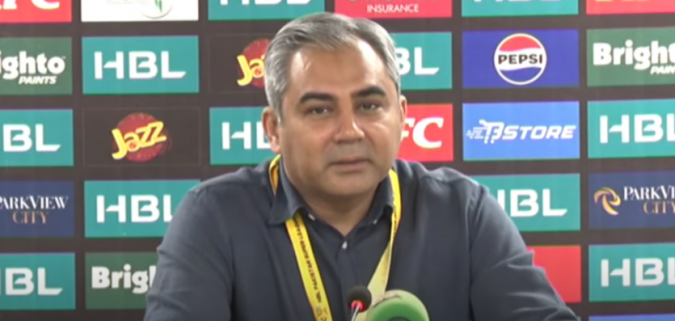The unthinkable has happened. The Pakistan cricket team, once hailed as one of the most formidable forces in world cricket, has succumbed to an embarrassing defeat against Bangladesh in a Test series—a nation that had never before tasted victory against Pakistan in the longest format of the game. The loss isn’t just about the numbers on the scoreboard; it’s a bitter pill to swallow for a cricketing nation with a rich history and passionate fanbase. The questions now loom large: Who is to blame? Is it the players, the management, or the very system that governs cricket in Pakistan?
The Blame Game: A Shared Responsibility
When a team of Pakistan's stature falters so spectacularly, it’s rarely the fault of one individual or a single factor. The blame, as is often the case, is shared across several levels—starting from the dressing room and extending to the very top of the Pakistan Cricket Board (PCB).
The Players’ Performance: A Stark Decline
The star players, who are supposed to be the backbone of the team, have failed to deliver when it mattered the most. Babar Azam, the captain and a player often compared to the likes of Virat Kohli, looked out of sorts throughout the series. Shaheen Shah Afridi, once the spearhead of Pakistan's bowling attack, was a shadow of his former self. Shan Masood and Usama Mir, who have shown flashes of brilliance in the past, were unable to rise to the occasion.
While poor form can plague any cricketer, the collective dip in performance from these key players raises concerns about their mental and physical preparation. Are they burnt out? Or is there something more insidious at play—perhaps a lack of motivation or a disconnect with the team management?
Team Selection: A Puzzling Affair
The selection committee, under the watch of the PCB, has made some baffling decisions. The inclusion of players who are clearly out of form and the exclusion of promising talents from the domestic circuit suggest a lack of clear vision. Poor team selection has often been cited as a factor in Pakistan's inconsistent performances, and this series against Bangladesh was no exception. It begs the question: Are the selectors too focused on reputations rather than current form?
The PCB and Mohsin Naqvi: Promises Unfulfilled
When Mohsin Naqvi took over as the chairman of the PCB, he promised "surgical changes" in the team and selection committees. Yet, we have seen little in the way of positive change. If anything, the team seems to be in a state of disarray, with no clear direction or strategy.
Under his leadership, the PCB has failed to address the core issues plaguing Pakistan cricket. The lack of an experienced and visionary coach, coupled with a selection committee that appears to be out of touch with the realities of modern cricket, has left the team rudderless. The much-touted "surgical changes" have so far been nothing more than cosmetic, with no real impact on the team’s performance.
Internal Politics: The Elephant in the Room
It’s no secret that internal politics has often undermined the Pakistan cricket team. Whispers of discord between players, disagreements with the coaching staff, and interference from the board have long been part of the narrative. These issues, though often brushed under the carpet, cannot be ignored. They create an environment where players are more focused on off-field battles than on-field performances.
Conclusion: A Time for Introspection
Pakistan’s loss to Bangladesh is more than just a defeat; it’s a wake-up call. The PCB, the players, and the coaching staff must all take a long, hard look in the mirror. The fans deserve better. Pakistan cricket deserves better. It’s time for the PCB to stop making empty promises and start delivering results. The players, too, need to step up and show the world that they are not just riding on past glories but are capable of reclaiming Pakistan’s place among the elite in world cricket.
The clock is ticking, and the world is watching. Pakistan cricket cannot afford another fall from grace.





